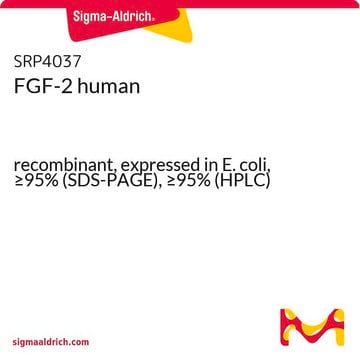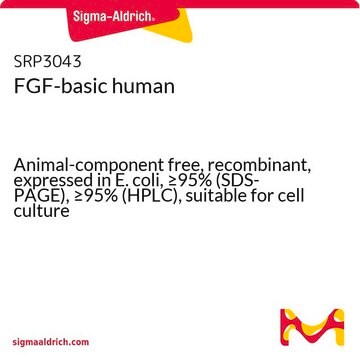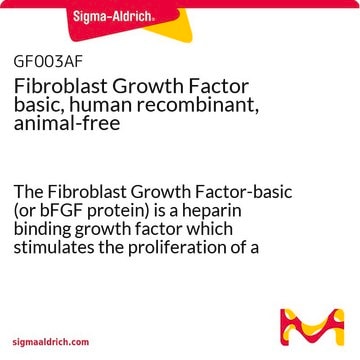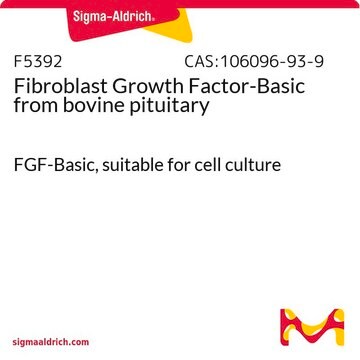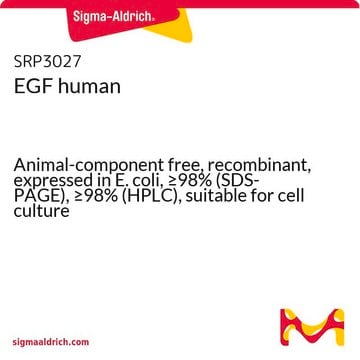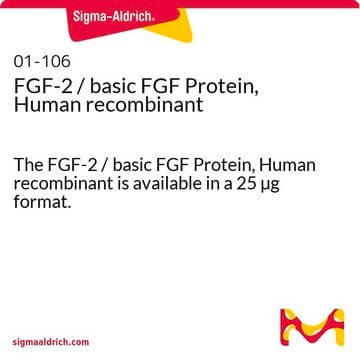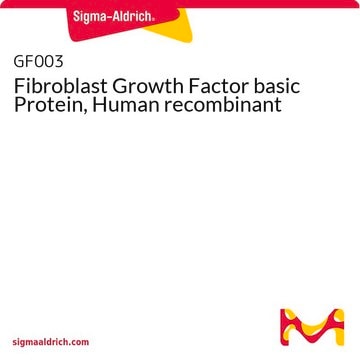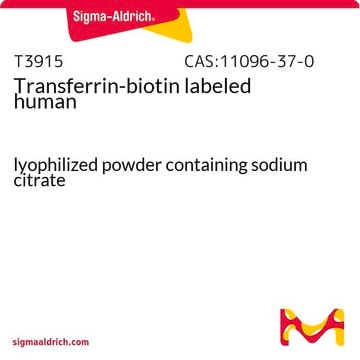F9786
Fibroblast Growth Factor-Basic Heparin Stabilized human
recombinant, expressed in E. coli, aqueous solution, suitable for cell culture
Synonym(s):
rhbFGF
About This Item
Recommended Products
product name
Fibroblast Growth Factor-Basic Heparin Stabilized human, FGF-Basic, recombinant, expressed in E. coli, sterile-filtered, aqueous solution, suitable for cell culture
biological source
human
Quality Level
recombinant
expressed in E. coli
sterility
sterile-filtered
form
aqueous solution
potency
0.03-3.0 ng/mL ED50/EC50
quality
endotoxin tested
packaging
pkg of 1 and 5 mL
technique(s)
cell culture | mammalian: suitable
UniProt accession no.
storage temp.
2-8°C
Gene Information
human ... FGF2(2247)
General description
Application
Biochem/physiol Actions
related product
Storage Class Code
11 - Combustible Solids
WGK
WGK 3
Flash Point(F)
Not applicable
Flash Point(C)
Not applicable
Personal Protective Equipment
Certificates of Analysis (COA)
Search for Certificates of Analysis (COA) by entering the products Lot/Batch Number. Lot and Batch Numbers can be found on a product’s label following the words ‘Lot’ or ‘Batch’.
Already Own This Product?
Find documentation for the products that you have recently purchased in the Document Library.
Customers Also Viewed
Articles
Fibroblast growth factors in cell culture and various growth factors for your research
Our team of scientists has experience in all areas of research including Life Science, Material Science, Chemical Synthesis, Chromatography, Analytical and many others.
Contact Technical Service